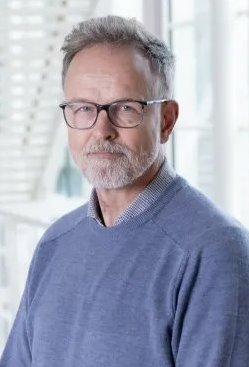Developer Offer
Try ImaginePro API with 50 Free Credits
Build and ship AI-powered visuals with Midjourney, Flux, and more — free credits refresh every month.
AI Is Revolutionizing Medical Imaging for Better Healthcare
 Henkjan Huisman. Image source: Radboud University
Henkjan Huisman. Image source: Radboud University
Radboud University has appointed Henkjan Huisman as the new Professor of AI Guided Imaging. His research is set to advance our understanding of AI in healthcare, focusing on making patient care more effective and affordable through innovations in medical imaging.
Medical imaging, which uses technologies like sound waves (ultrasound), magnetic fields (MRI), and radioactive substances (nuclear medicine) to visualize the human body, is becoming increasingly intertwined with artificial intelligence (AI).
The Two Pillars of AI Guided Imaging
Professor Huisman's research centers on two critical forms of AI 'guidance' in medical imaging.
The first pillar is the responsible and trustworthy implementation of AI. "We know how to build diagnostic AI that performs at expert level. What we lack is trust in the technology to enable efficient, safe, and affordable implementation," Huisman explains. He emphasizes that AI must be guided by robust benchmarks and monitoring systems, ensuring that human experts always retain final responsibility. In the short term, this approach will help evaluate if AI applications genuinely improve patient outcomes. The long-term vision is to develop a continuously learning AI system under smart human supervision, using data from past patients to enhance care for current ones.
The second form of guidance involves using AI to actively steer imaging technology during medical procedures. For instance, AI can automatically control an MRI machine to track an instrument, such as a needle during a biopsy, more rapidly. This makes treatments not only faster but also significantly more precise.
From Lab to Life: Ensuring Societal Impact
For Henkjan Huisman, the societal value of his work is paramount. "The ultimate goal of my team and myself is to improve patient care—preferably in the short term," he states. To achieve this, his team employs proven methodologies like the NWO Impact Pathway and Working Backwards, ensuring that all research efforts directly contribute to societal well-being.
Bracing for the AI Healthcare Revolution
Looking to the future, Huisman anticipates massive shifts in healthcare driven by AI. "Even with my 35 years of experience in medical AI research, it’s a challenge to keep up with current developments," he admits. "By mid-2025, the best AI already matches expert-level performance in many medical domains." He warns that the healthcare system may not be ready for the paradigm shift from patients consulting the often unreliable 'Dr. Google' to the highly accurate 'Dr. ChatGPT'. According to Huisman, this rapid advancement makes the need for organized, effective evaluation and oversight of AI more critical than ever.
About Professor Henkjan Huisman
Henkjan Huisman studied Electrical Engineering in Delft with a specialization in medical imaging. He has spent the majority of his career at the Radiology Department at Radboudumc, where he earned his PhD in 1998 for his research on analyzing liver tumors with ultrasound. His extensive career includes roles at various academic and corporate institutions globally, including a professorship at the Norwegian University of Science and Technology and memberships in key steering committees like the AAPM and the PI-RADS guideline committee for prostate MRI AI.
Compare Plans & Pricing
Find the plan that matches your workload and unlock full access to ImaginePro.
| Plan | Price | Highlights |
|---|---|---|
| Standard | $8 / month |
|
| Premium | $20 / month |
|
Need custom terms? Talk to us to tailor credits, rate limits, or deployment options.
View All Pricing Details

